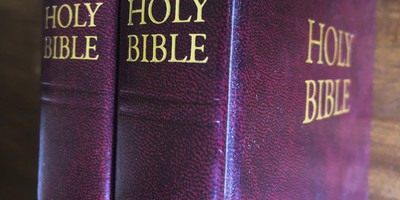"You may not be interested in war, but war is interested in you.” – Leon Trotsky
“What did I ever do to make you treat me this disrespectfully?” These words, taken from a classic film, parody the godfather figure—someone who wields influence with a sharp-edged weapon. In President Trump’s world of US foreign policy, Irving Kristol can be seen as the godfather behind an ideology that has resulted in endless wars, skyrocketing national debt, and far-reaching foreign entanglements. Under the guise of spreading democracy, Kristol’s influence mirrors the globalist ambitions of his early Marxist roots, and if his version of foreign policy was a “deal you couldn’t refuse,” it would come at the price of American sovereignty.
Kristol, in his youth, was a committed Trotskyist, subscribing to the revolutionary vision of global revolution. He was deeply involved in the leader’s Fourth International, a Marxist organization that sought to incite international workers’ revolutions to overthrow capitalism. Kristol, like many intellectuals of the 1930s, was drawn to Leon Trotsky’s vision of a world free from the imperialist system. However, as Kristol grew older, he became disillusioned with Marxism’s failure to bring about the promised utopia. By the late 1940s, he began to distance himself from the left, and by the 1970s he had fully transitioned to neoconservatism, a movement advocating a belief in “American exceptionalism.” He emphasized the United States’ moral obligation to spread democracy as his new global revolution.
However, Kristol’s belief in military intervention as a tool for promoting democracy directly contradicted the anti-imperialist stance he had once championed. In his new role as a leading voice for neoconservatism, Kristol played a crucial part in reshaping US foreign policy and pushing the United States into wars in Iraq and Afghanistan, as they were, in his view, necessary for spreading democratic ideals. For Kristol, the move from Trotskyism to neoconservatism was never a departure from globalism, but a rebranding of the same internationalist philosophy. His belief that America must lead the world by spreading democracy mirrors Trotsky’s vision to instigate global change through force. This interventionist foreign policy model has been pursued by every neoconservative administration and resulted in disastrous conflicts and wasted defense budgets. The endless wars have since destabilized entire regions, and led to countless deaths, to impose one nation’s political ideals on another disregarding the latter’s sovereignty.
Recommended
In addition to its favoring the use of force, his neoconservative ideology also did not account for the potentially devastating potential economic, and social consequences of military intervention—as if such a solution would always bring about positive change. Donald Trump, a critic of the neoconservative movement warned, such foreign interventions would ultimately lead to a weakening of the United States at home and abroad. He foresees the consequences of Kristol’s interventionist policies and loss of moral and diplomatic credibility. As Trump understood, these entanglements erode American strength and diminished her role on the world stage.
Kristol’s errands in the wilderness, rooted in spreading democracy through military intervention, is in many ways old wine in the new cask of the internationalism he once espoused as a Trotskyist. Both ideologies sought to reshape the world through the imposition of a single political vision—first through Marxist revolution, then through US military power. The neoconservative belief that the United States must intervene in foreign conflicts to uphold democracy is a direct parallel to Trotsky’s belief in permanent revolution, where one nation’s political ideals must be imposed globally. The tragic irony is that Kristol, who once rejected Soviet totalitarianism, became a key advocate for a like globalism with the same gun-point persuasion he had fought against. Just as Trotsky sought to overthrow political structures, Kristol pushed for the toppling of foreign governments while undermining American sovereignty.
The solution to the foreign policy failures initiated by Kristol and the neoconservative movement is clear: a return to the Constitution and American sovereignty. The Founding Fathers warned against entangling alliances and foreign wars that did not serve the direct interests of the United States. Trump’s calls for a focus on “America First” resonate today as strongly as ever to restore a strong, self-reliant America. In the end, we have no room for blood oaths in foreign policy. It’s time to reject the interventionist thinking that has plagued America for decades and restore a true focus on the sovereignty and strength that made this country great.

























Join the conversation as a VIP Member